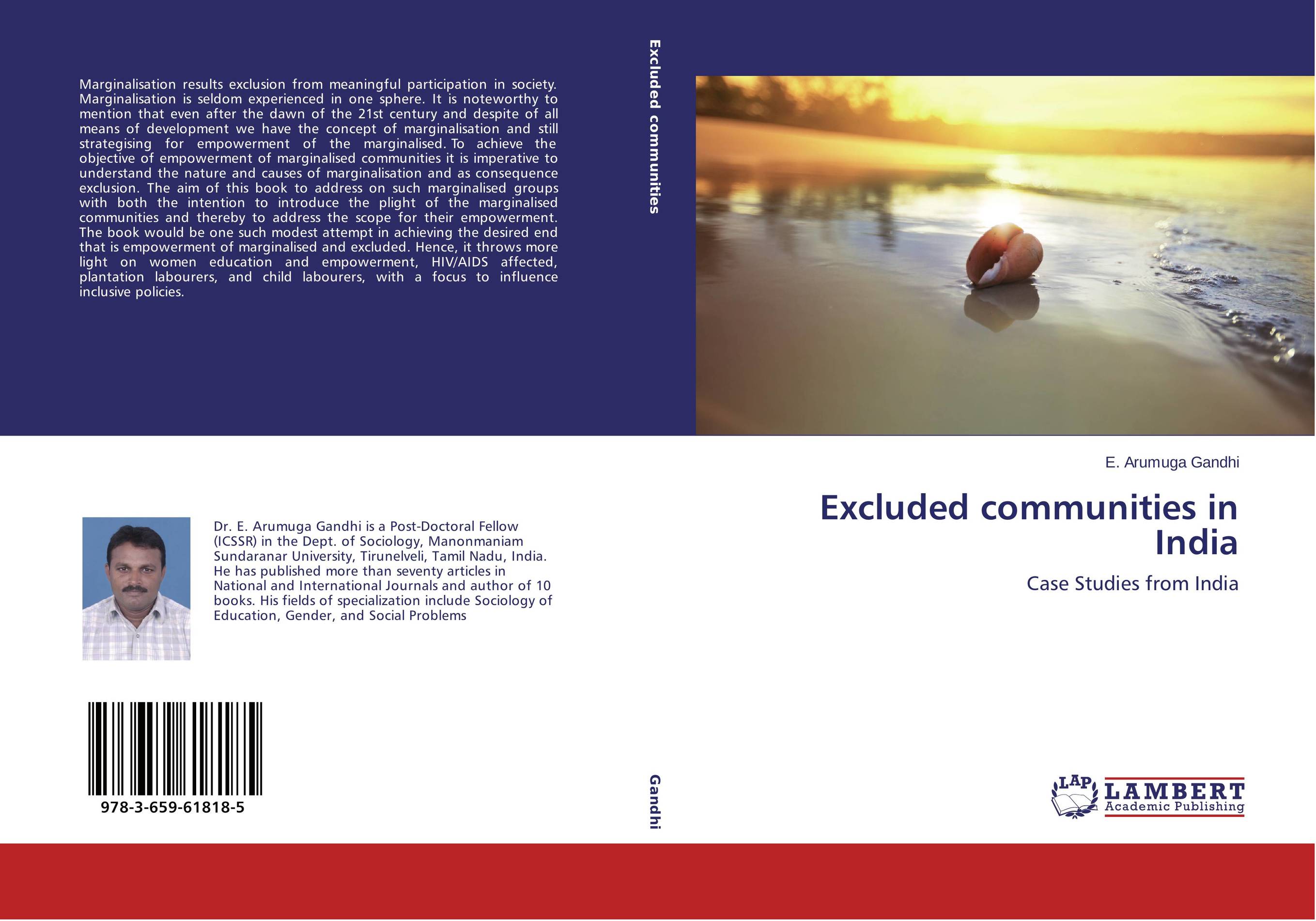| Поиск по каталогу |
|
(строгое соответствие)
|
- Профессиональная
- Научно-популярная
- Художественная
- Публицистика
- Детская
- Искусство
- Хобби, семья, дом
- Спорт
- Путеводители
- Блокноты, тетради, открытки
Excluded communities in India. Case Studies from India

В наличии
| Местонахождение: Алматы | Состояние экземпляра: новый |

Бумажная
версия
версия
Автор: E. Arumuga Gandhi
ISBN: 9783659618185
Год издания: 2014
Формат книги: 60×90/16 (145×215 мм)
Количество страниц: 316
Издательство: LAP LAMBERT Academic Publishing
Цена: 55533 тг
Положить в корзину
| Способы доставки в город Алматы * комплектация (срок до отгрузки) не более 2 рабочих дней |
| Самовывоз из города Алматы (пункты самовывоза партнёра CDEK) |
| Курьерская доставка CDEK из города Москва |
| Доставка Почтой России из города Москва |
Аннотация: Marginalisation results exclusion from meaningful participation in society. Marginalisation is seldom experienced in one sphere. It is noteworthy to mention that even after the dawn of the 21st century and despite of all means of development we have the concept of marginalisation and still strategising for empowerment of the marginalised. To achieve the objective of empowerment of marginalised communities it is imperative to understand the nature and causes of marginalisation and as consequence exclusion. The aim of this book to address on such marginalised groups with both the intention to introduce the plight of the marginalised communities and thereby to address the scope for their empowerment. The book would be one such modest attempt in achieving the desired end that is empowerment of marginalised and excluded. Hence, it throws more light on women education and empowerment, HIV/AIDS affected, plantation labourers, and child labourers, with a focus to influence inclusive policies.
Ключевые слова: Inclusion, Women, HIV/AIDS, exclusion, Child Labour, education, plantation



